Sport Nutrition for your Training
Tips for the perfect nutrition before, during and after exercise
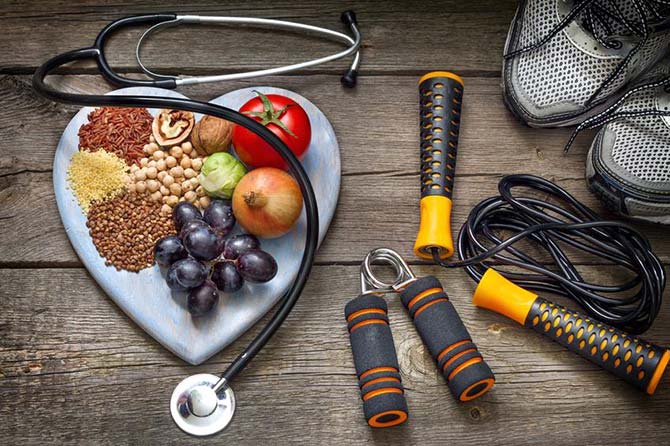
The right nourishment is not only a basis for fitness and stamina - a balanced diet during exercise also determines your performance or in other words: you will never get the best out of yourself and attain sporting success with the wrong nutrition. Let us first of all explain what you should eat before, during and after training.
Good to know: When it comes to sports nutrition, it is important to know that depending on the type of sport, you need different nutrients that influence your metabolism and thus make you more powerful. This means that football nutrition is different from food for joggers or handball players. This means that athletes can increase their success rate by following some basic simple rules when it comes to nutrition.
Sports nutrition: How metabolism can influence performance
First of all, you need to understand the underlying principles of metabolism, so that you can apply the basic rules of sports nutrition. Our metabolism is the foundation of all the biochemical processes in our body. Metabolism includes not only digestion but also respiration and the generation of energy.
Therefore, for our body to function well and to shine through our performance during exercise, our body needs to be able to perform proper metabolic processes. During metabolism, the components of nutritive substances are adapted and transformed in our body cells. That is why our body continuously requires nutrients. They serve as sources of energy, among other things. Here, the connection between food, sport and performance becomes very clear.
Sports & Food: Which nutrients will boost my performance?
But which nutrients does our body need when we exercise? The following applies as a rule of thumb for sport nutrition: About 50% of your energy requirements should be provided by carbohydrates, 20% by fats and 15% by proteins. It is necessary to concentrate primarily on the quality of nutrient material. Because one carbohydrate is by no means the same as another carbohydrate.
Carbohydrates
Carbohydrates are the most important source of energy in sport nutrition. However, the body can store only a limited quantity of this nutritive material in its glycogen stores so that they are then ready to be delivered on demand.
The “good” carbohydrates with a low glycaemic index are particularly valuable for exercise. That means they do not allow the blood sugar levels to peak, while still delivering energy to our body over a longer period of time. They can be found in whole grain breads, durum wheat pasta and legumes, among other things.
On the other hand, products made of white flour or sugar contain “bad” carbohydrates. They contribute to weight gain over the long term and provide only a brief rush of energy.
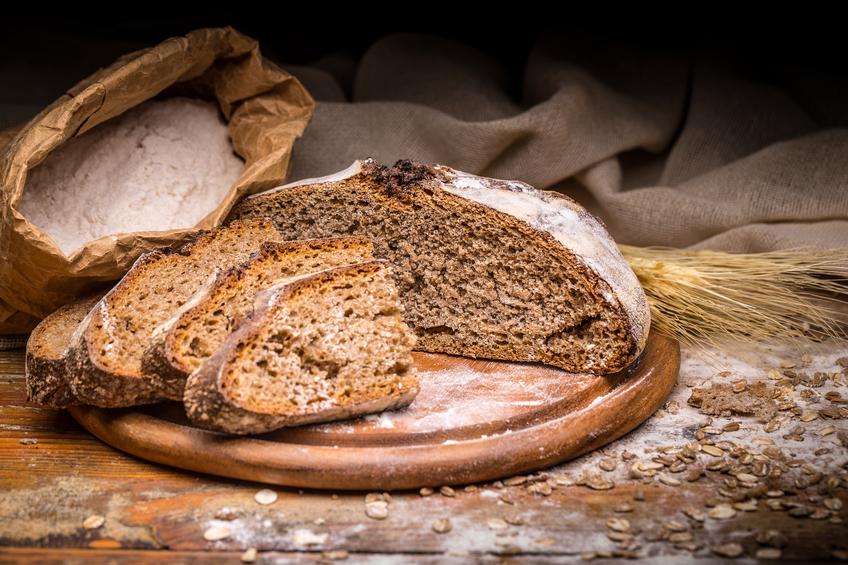
Fats
Like carbohydrates, fats also serve as a source of energy and therefore also have a say in sports nutrition. Since, in comparison with the two other nutrients, fat is the slowest to be digested, you should generally avoid fatty meals before exercising. If your body is occupied with digestion on the football field or the running track, your performance will automatically be reduced.
Polyunsaturated fats such as Omega-3 and Omega-6 fatty acids have a special place in sports nutrition as they strengthen the heart and circulation. These can be found mainly in cold water fish such as salmon and mackerel as well as in vegetable oils.
![[The image shows a piece of salmon on a wooden board with herbs, lemon slices, and spices. It symbolizes healthy eating and the benefits of fish for heart health.]](https://static.owayo-cdn.com/newhp/img/magazin/sportnutrition/salmon-is-good-for-the-heart.jpg)
Proteins
A sufficient supply of protein is primarily associated with muscle development when exercising. But even if you don’t want to gain muscle mass, proteins help in the regeneration of stressed muscle fibres, and should therefore also be included in the diet of amateur sport enthusiasts.
Eggs, lean meat, dairy products and legumes serve as rich sources of protein.
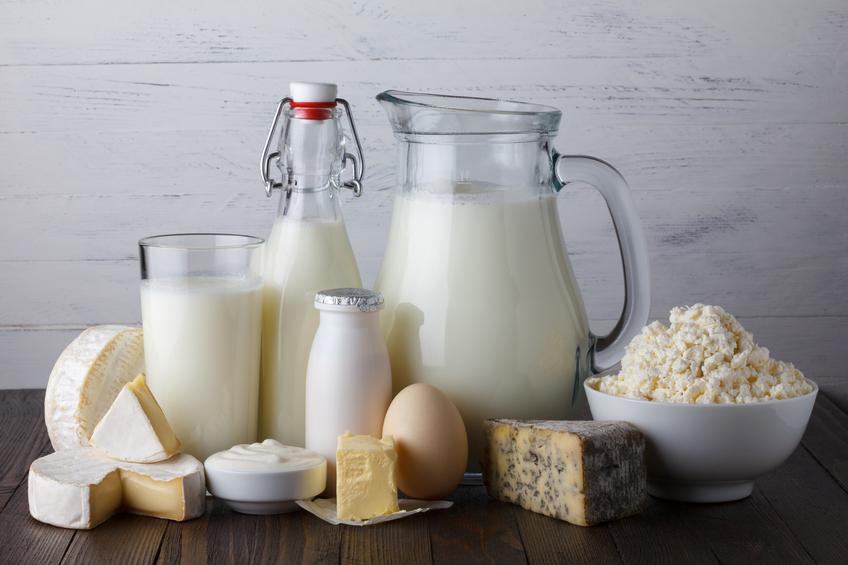
What you should eat before and after exercising
Generally speaking, there should be a gap of at least three hours between the last main meal and the start of sports training. Eat bread or noodles to ensure you are well stocked up on carbohydrates. The best way to do this is in the form of a wholesome meal on the previous evening or long enough before training. For example, you can have a noodle party on the evening before a marathon.
Nevertheless, you should never start exercising on a rumbling empty stomach! A handful of nuts or a few pieces of dark chocolate are definitely permitted just before exercising.
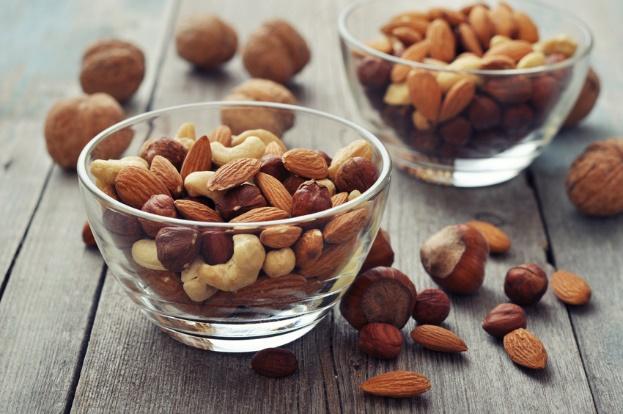
In order to strengthen your muscles, the best time to consume proteins is after exercising. In an interview with „Spiegel Online“ (in German; "Spiegel" is a German weekly news magazine), Petra Platen, Chair for Sports Medicine and Sports Nutrition at the Ruhr University, Bochum, recommends planning several protein snacks after exercising, preferably every two hours. For example, instead of eating after exercising, you can simply drink some skimmed milk.
Sport nutrition and hydration
As you should pay attention to nutrient intake during exercise, but eating while exercising is not recommended, this is where drinking comes into play. Within sports nutrition, drinking not only compensates for increased fluid needs, it also provides nutrients.
The problem here is that if you lose one percent of your body weight in water, your performance decreases measurably. Therefore, do not only think about drinking when you feel thirsty because there is a delay in your body absorbing the water.
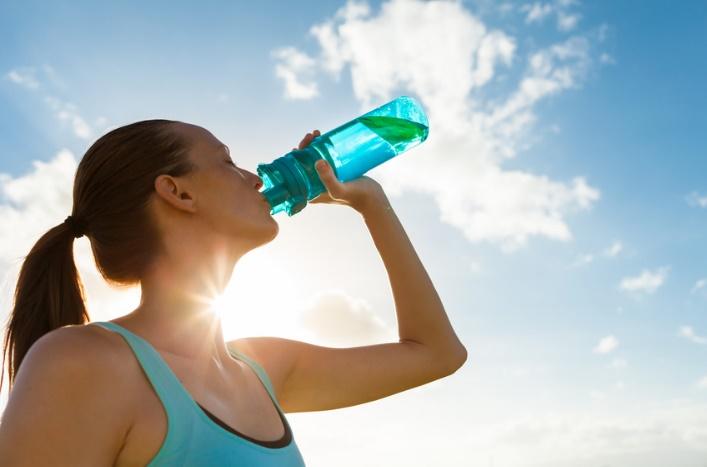
If you pay attention to a balanced exercise diet, you should drink regularly throughout the day to keep your fluid balance in the long term. And another reason to hydrate regularly: when playing sports or exercising, nutrients can only get to their intended places in your body when the fluids are balanced!
Water rich in sodium is particularly suitable for athletes. When exercising, you may like to drink isotonic drinks that also provide carbohydrates. This delays exhaustion. A fruit juice spritzer mixed in a ratio of one to one is suitable after a strenuous workout.
The correct nutrition for every sport
When it comes to sports nutrition, remember: the right nutrition for football is not the same as the right nutrition for cycling. Different sports also place different demands on your body in different ways and this should also influence your choice of food!
Football/Soccer
Before: Carbohydrate-rich meal, such as noodles
During: Water or isotonic drink
After: Apple spritzer with a pinch of salt
Cycling
Before: Carbohydrate-rich meal, such as wholegrain bread
During: Water, muesli bars
After: No fat!
Jogging
Before: An easy to digest meal, such as scrambled eggs
During: Water
After: For a marathon: Carbohydrates / For weight loss: Protein
Weight training
Before: An easy to digest meal, such as fruit or yoghurt
During: Water
After: Protein-rich meal, such as dairy products
Football/Soccer nutrition
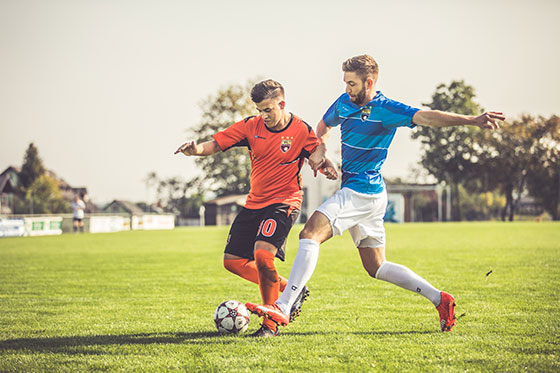
Football demands not just constant concentration but also subjects your body to intervals of high stress. This means that for football it is important to stock up on your stores of carbohydrates with your last main meal before the game. Then drink 250 ml of water 10 minutes before kick-off. This will ensure that the nutrients reach the blood circulation in time. Recharge your energy at half-time with one or two glasses of an isotonic drink and a few pieces of banana.
It is of particular importance to regain your water and electrolyte balance after the game. It is recommended that as part of football nutrition that you drink an isotonic sports drink: to do this mix apple juice with sparkling water and add a pinch of salt to balance the loss of sodium. You can again reward yourself with a carbohydrate rich meal two to three hours after the game.
Similar demands are made on your body by sports such as handball, ice hockey and basketball and therefore the nutrition should be similar.
Cycling nutrition
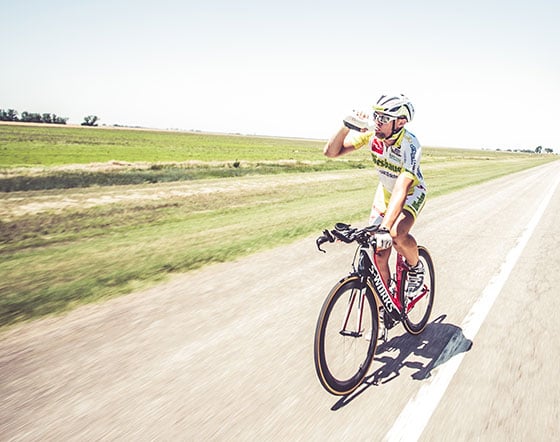
As a part of a cyclist's nutrition pay particular attention to ensuring that your store of carbohydrates is well filled. Bananas, muesli bars and sports drinks should always be in your pack on longer routes. It is important to always remember hydration after an intensive round of training. It is best to drink isotonic drinks or even a classic apple juice spritzer. Avoid eating food that is difficult to digest after a round of training.
Jogging nutrition
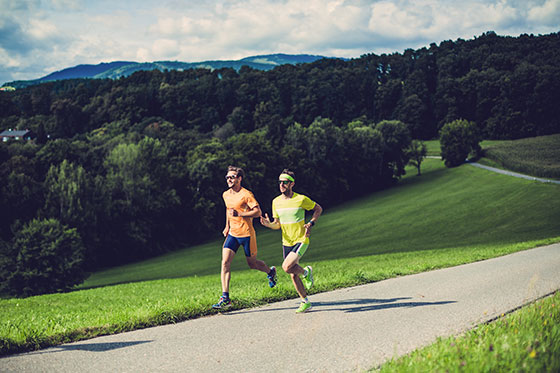
Your pre-running meal should, above all, be easy to digest and low in dietary fibre. Scrambled eggs or even wholegrain toast with honey are a good choice.
A lack of water while running can be a silent motivation killer. So keep your water supply balanced throughout the day. While jogging, you can drink 100-200ml of liquid every 20 minutes. Caution: Drinking too much too fast only makes for a heavy stomach.
The rules for after running depend on what goal(s) you have set for yourself. Those preparing for a marathon should make sure that their glycogen stores are kept well filled. If you are running to lose weight, you should focus on high-quality protein.
Why runners can safely do without protein shakes, energy gels etc. and what really makes good nutrition for a runner Running expert Andreas Butz reveals in an interview.
Weight training nutrition
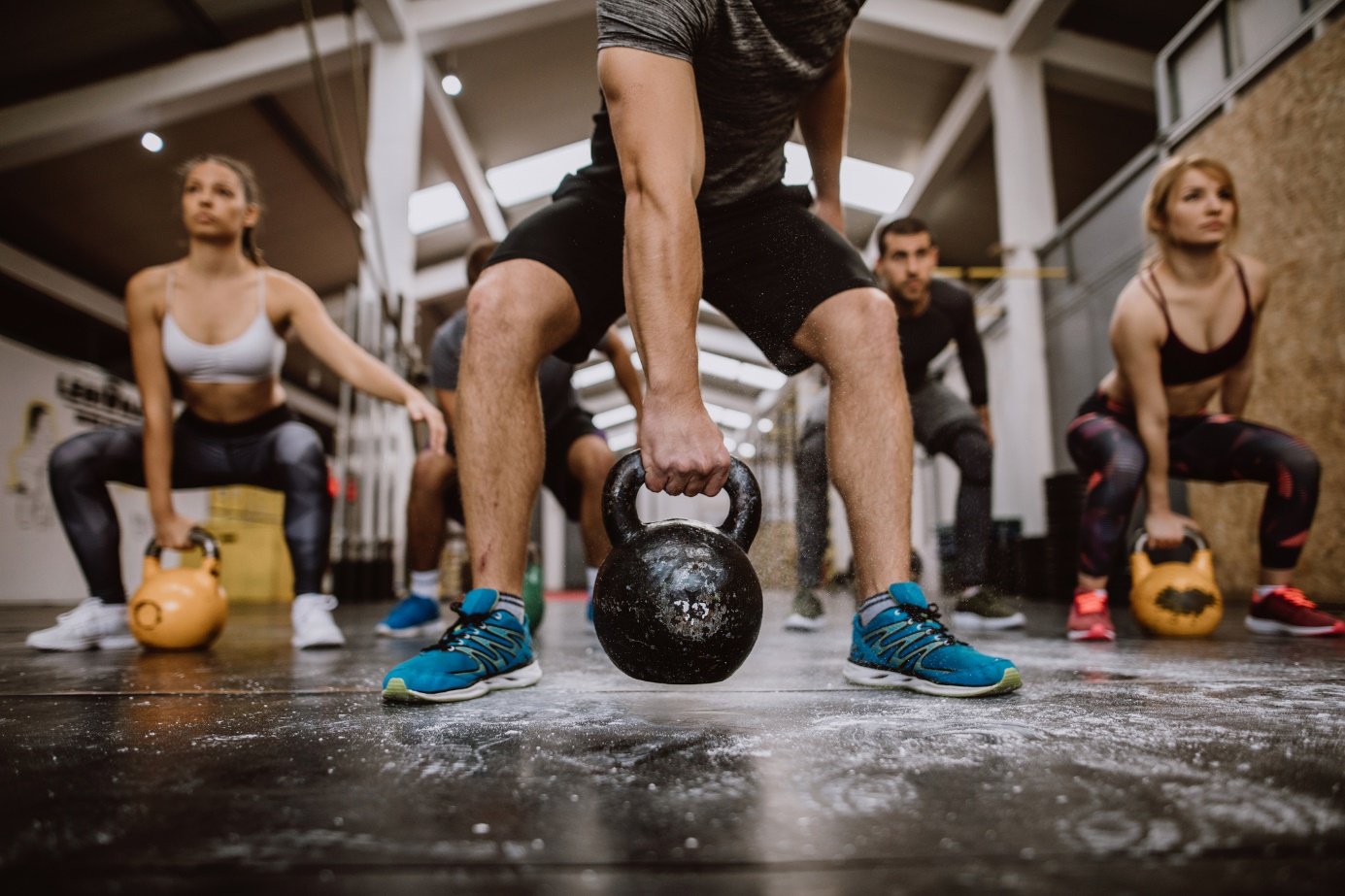
If you prefer to work outon the weight bench in the gym, you should also adjust your sports nutrition accordingly. If you get hungry right before a workout, you can, with a clear conscience, grab a banana, apple or yoghurt (sugar-free) with some oatmeal.
When you want to build muscle the right protein intake is important. Therefore, after training, you should eat high-quality protein sources such as lean meat, dairy products and legumes.
The myth that you only have a short window of time for this is not true. A delicious omelette provides its full effect up to two hours after the gym.
Protein shakes only make limited sense, especially for amatuers. The need for protein that develops in your body after a normal training session can simply be fulfilled by a balanced diet. But if you like to follow numbers and want a natural protein bomb, simply try a small bowl of cottage cheese after exercising.
Sports nutrition - the push for body and performance
Soccer, jogging or cycling - whatever sport is your favourite, by paying attention to your sports nutrition you can optimally increase your performance by supporting your metabolism. Besides a balanced nutrient intake and eating at the right time, drinking at the right moment is also important.
Now you know all about nutrition in sports, but you want that extra motivation or team spirit in the team? Then order a customised printed jersey for example for football, handball or cycling with your favourite athlete's number or your favourite logo!
Images: Cover image: ©iStock/udra, 2: ©iStock/grafvision, 3: ©iStock/valentynvolkov, 4: ©iStock/nevodka, 5: © iStock/tashka2000, 6: ©iStock/kieferpix, 7: ©iStock/gpointstudio; 8: ©iStock/kzenon, 9: Gettyimages/Pekic